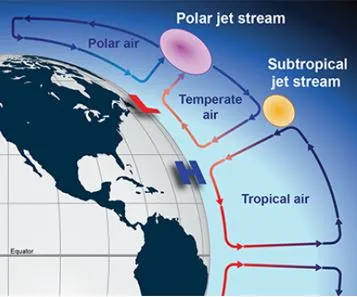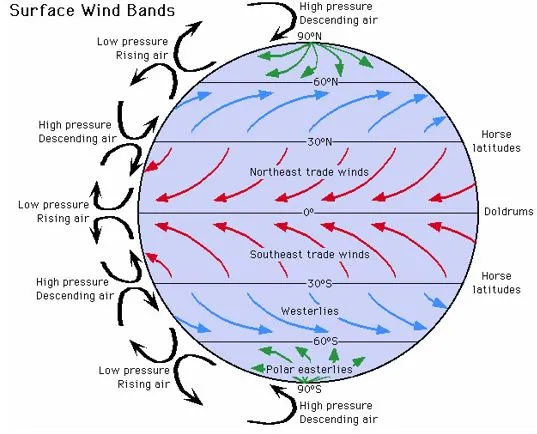

10th September 2024 (12 Topics)
Context
In recent years, the Indian monsoon, once celebrated as a life-giving force for the subcontinent, has increasingly become a symbol of climatic unpredictability. The erratic nature of the monsoon, which brings both severe floods and debilitating droughts, has raised urgent questions about the underlying causes. A recent study sheds light on an unexpected factor influencing these shifts: Arctic sea ice.
What is the Indian Summer Monsoon Rainfall?
- The Indian Summer Monsoon Rainfall (ISMR) is a crucial weather phenomenon that shapes the climate of the Indian subcontinent from July to September, with peak rains typically in July and August.
- During the summer, the landmass of Central Asia and India heats up faster than the surrounding oceans. This differential heating creates a low-pressure zone at the Tropic of Cancer, known as the intertropical convergence zone (ITCZ).
- Trade winds from the southeast are deflected towards the Indian subcontinent due to the Coriolis effect and the low pressure.
- As these winds move over the Arabian Sea, they gather moisture and bring rainfall to India.
- The southwest monsoon splits into two branches:
- one affecting the west coast from the Arabian Sea
- the other traveling towards the Bay of Bengal to bring rain to the eastern and northeastern regions
- The two branches converge over Punjab and Himachal Pradesh, with the Arabian Sea branch moving inward and the Bay of Bengal branch following the Himalayas.
How Does Arctic Sea Ice Influence the Indian Monsoon?
- Recent research highlights that Arctic sea ice levels play a significant role in determining the behavior of the Indian monsoon.
- Key Findings from the Study:
- Decline in central Arctic Sea ice correlates with reduced rainfall in western and peninsular India but increased rainfall in central and northern India.
It affects atmospheric circulation patterns, which in turn impact monsoon distribution.
- Decrease in Sea Ice in the Barents-Kara Sea Region leads to a delayed monsoon onset and greater unpredictability in rainfall patterns.
- It creates high-pressure conditions over southwest China and affect atmospheric stability over the Indian subcontinent, leading to increased rainfall in northeastern India and drier conditions in central and northwest India.
Fact Box: Atmospheric Processes Involved:
|




